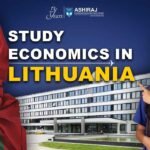
Economics in Sweden
Economics in Sweden showcases a dynamic blend of social welfare policies, innovation, and a robust market economy. Renowned for its high standard of living, Sweden has carved a unique path in the global economic landscape. With a blend of free-market capitalism and a robust welfare state, Sweden boasts low levels of income inequality and a strong emphasis on social welfare. The country’s economic model is characterized by a high degree of openness, innovation, and government intervention to ensure equitable distribution of wealth and opportunities.
In recent years, Sweden has emerged as a global leader in innovation and sustainability, fostering a conducive environment for startups and businesses to thrive. The nation’s commitment to research and development, coupled with progressive policies, has propelled its economy forward, making it one of the most competitive and innovative in the world. As Sweden continues to navigate global economic challenges, its model serves as a testament to the efficacy of blending market principles with social welfare objectives, ensuring sustainable growth and prosperity for its citizens.
Why to Study Economics in Sweden?
- Innovative Economic Model: Sweden’s unique blend of free-market capitalism and social welfare policies offers a fascinating case study for economics students worldwide.
- High-Quality Education: Swedish universities are renowned for their high-quality economics programs, offering students access to top-notch faculty and research opportunities.
- Global Economic Relevance: Despite its relatively small size, Sweden punches above its weight economically, playing a significant role in global trade and innovation.
- Emphasis on Sustainability: With a strong focus on sustainability and environmental protection, studying economics in Sweden provides insights into integrating economic growth with environmental stewardship.
- Internationally Diverse Environment: Swedish universities attract students from all over the world, providing a rich multicultural learning experience.
- Opportunities for Research and Internships: Students studying economics in Sweden have access to a vibrant research community and ample opportunities for internships in multinational corporations, government agencies, and non-profit organizations.
- Career Prospects: A degree in economics from Sweden opens doors to diverse career opportunities in sectors ranging from finance and consulting to public policy and international development.
- Quality of Life: With its high standard of living, excellent healthcare, and strong social welfare system, studying economics in Sweden offers not just academic enrichment but also a high quality of life experience.
- Networking Opportunities: Being part of Sweden’s academic community allows students to network with professionals and experts in various fields, enhancing their career prospects and personal growth.
- Cultural Immersion: Living and studying in Sweden provides students with the opportunity to immerse themselves in Swedish culture, fostering a broader understanding of global perspectives in economics.
Top Universities to Study Economics in Sweden
University | QS World University Ranking 2023 | Type of University | Average Annual Fees | Programs Offered |
Stockholm University | 45 | Public | $0 – $13,000 | Bachelor’s, Master’s, Ph.D. |
Lund University | 90 | Public | $0 – $15,000 | Bachelor’s, Master’s, Ph.D. |
Uppsala University | 110 | Public | $0 – $14,000 | Bachelor’s, Master’s, Ph.D. |
Gothenburg University | 130 | Public | $0 – $12,000 | Bachelor’s, Master’s, Ph.D. |
Stockholm School of Economics | 150 | Private | $15,000 – $30,000 | Bachelor’s, Master’s, Ph.D. |
- Stockholm University: Ranked 45th globally, it offers a range of economics programs at affordable fees.
- Lund University: Ranked 90th globally, it provides comprehensive economics programs with a focus on research.
- Uppsala University: Ranked 110th globally, it offers diverse economics programs and a vibrant academic environment.
- Gothenburg University: Ranked 130th globally, it provides quality education in economics with a strong emphasis on practical skills.
- Stockholm School of Economics: A prestigious private institution ranked 150th globally, offering specialized economics programs with a higher fee range.
Course Curriculum for Economics in Sweden
- Core Economics Concepts: Courses typically start with foundational topics like microeconomics, macroeconomics, and econometrics, providing students with a solid understanding of economic theories and principles.
- Empirical Analysis: The curriculum often includes modules focusing on empirical analysis and research methods, equipping students with the skills to collect, analyze, and interpret economic data.
- Policy Analysis: Students delve into the analysis of economic policies, exploring their impact on various socio-economic factors such as employment, inflation, and income distribution. This aspect emphasizes the practical application of economic theory in real-world scenarios.
- Specialized Electives: Universities offer a wide range of elective courses allowing students to specialize in areas such as international economics, environmental economics, development economics, or financial economics, tailoring their studies to their interests and career goals.
- Interdisciplinary Approach: Many programs adopt an interdisciplinary approach, integrating concepts from related fields like sociology, political science, and mathematics, providing students with a holistic understanding of economic phenomena.
- Research Projects: Students often engage in research projects or thesis work, where they apply their knowledge and skills to address real-world economic issues, contributing to academic discourse and gaining practical experience.
- Internship Opportunities: Some programs incorporate internships or work placements, enabling students to gain hands-on experience in various economic sectors, further enhancing their employability.
- Global Perspective: With Sweden’s emphasis on globalization, courses often incorporate a global perspective, examining the interconnectedness of economies and the implications of international trade and finance.
- Critical Thinking Skills: Throughout the curriculum, students develop critical thinking and analytical skills, essential for evaluating economic theories, interpreting data, and making informed decisions in a complex economic landscape.
- Adaptability and Flexibility: The curriculum is designed to be adaptable and flexible, allowing students to customize their learning journey according to their interests and career aspirations.
Eligibility Criteria & Admission Requirements for MS in Economics in Sweden
- Language Proficiency: Applicants must demonstrate proficiency in English through standardized tests such as IELTS or TOEFL. Typically, a minimum score of 6.5 in IELTS or 90 in TOEFL is required.
- Standardized Test Scores: Many universities also require scores from either GRE or GMAT. For GRE, a competitive score ranges from 160-165 in Quantitative Reasoning and 155-160 in Verbal Reasoning. For GMAT, a score of around 650-700 is considered competitive.
- Passport & Student Visa: International applicants need a valid passport and must obtain a student visa to study in Sweden. The visa application process usually involves providing proof of admission to a Swedish university, financial means to support oneself, and health insurance coverage.
- Academic Certificates: Applicants must submit academic certificates, including transcripts and diplomas, demonstrating completion of previous education qualifications, such as a bachelor’s degree in economics or a related field.
- Work Experience: While not always mandatory, some universities may prefer applicants with relevant work experience in economics or related fields. Work experience can strengthen an applicant’s profile and demonstrate practical knowledge in the field.
- Minimum Grade Requirements: Some universities may have minimum grade requirements for previous academic qualifications, particularly in relevant subjects like mathematics, statistics, or economics.
- Statement of Purpose (SOP): Applicants may be required to submit a Statement of Purpose outlining their academic and career goals, research interests, and reasons for choosing economics in Sweden.
- Letters of Recommendation: Universities may require letters of recommendation from academic or professional referees attesting to the applicant’s academic abilities, work ethic, and potential for success in the program.
- Interviews: In some cases, applicants may be invited for an interview as part of the admission process to assess their suitability for the program and their motivation to study economics in Sweden.
- Application Deadlines: Applicants must adhere to application deadlines set by universities, as late submissions may not be considered for admission.
Documents Required for Studying Economics in Sweden
- Passport: A valid passport is essential for international students applying to study economics in Sweden, serving as proof of identity and nationality.
- Two Letters of Recommendation (LOR): Applicants typically need to submit LORs from academic or professional referees who can attest to their academic abilities, work ethic, and potential for success in the program.
- Statement of Purpose (SOP): An SOP outlining the applicant’s academic and career goals, reasons for choosing economics in Sweden, and their motivations for pursuing higher education is usually required.
- Curriculum Vitae (CV): A comprehensive CV detailing the applicant’s educational background, work experience, academic achievements, extracurricular activities, and any relevant skills or certifications.
- Official High School Transcripts: Applicants must provide official transcripts from their high school or secondary education institution, demonstrating completion of the required academic qualifications.
- Educational Certificates: Certificates verifying the completion of previous academic qualifications, such as a bachelor’s degree or equivalent, in economics or a related field are required.
- Work Experience Certificate: If applicable, applicants should submit a work experience certificate detailing their relevant work experience in economics or related fields.
- Proof of Financial Resources: Applicants need to demonstrate sufficient financial resources to cover tuition fees, living expenses, and other associated costs while studying economics in Sweden. This can be in the form of bank statements, scholarship letters, or sponsorship documents.
Admission Process for Economics in Sweden
- Research Universities: Begin by researching universities in Sweden offering economics programs, considering factors such as reputation, curriculum, faculty, and location.
- Check Eligibility Criteria: Review the eligibility criteria for each university, ensuring that you meet the academic and language proficiency requirements, including scores in exams like IELTS or TOEFL and GRE or GMAT.
- Prepare Required Documents: Gather necessary documents such as passport, academic transcripts, certificates, SOP, CV, LORs, work experience certificates, and proof of financial resources.
- Submit Application: Complete the online application form provided by the university, ensuring accuracy and completeness in all sections. Pay attention to application deadlines, which vary among universities.
- Pay Application Fee: Some universities may require payment of an application fee, which varies depending on the institution and program applied for.
- Wait for Notification: After submitting your application, wait for notification from the university regarding the status of your application. This may take several weeks or months, depending on the university’s admission process timeline.
- Interview (if applicable): Some universities may conduct interviews as part of the admission process to assess applicants’ suitability for the program.
- Receive Admission Offer: If successful, you will receive an admission offer from the university outlining the terms and conditions of your acceptance.
- Acceptance and Visa Application: Upon receiving the admission offer, accept the offer as per the university’s instructions and begin the process of applying for a student visa.
- Preparation for Arrival: Once the visa is approved, make necessary arrangements for accommodation, travel, and other logistics to prepare for your arrival in Sweden to commence your economics studies.
“Education is the most powerful weapon which you can use to change the world.”
Nelson Mandela
Cost of Economics Course in Sweden
- Tuition Fees: Swedish universities offer tuition-free education for EU/EEA students, including those studying economics, making it an attractive option for many. However, non-EU/EEA students may have to pay tuition fees, which vary depending on the university and program.
- Living Expenses: While tuition may be free for EU/EEA students, all students are responsible for covering living expenses such as accommodation, food, transportation, and other personal costs. These expenses can vary depending on the city and lifestyle choices.
- Accommodation: Renting accommodation in Sweden can be expensive, especially in major cities like Stockholm and Gothenburg. Students have options ranging from university dormitories to private apartments, each with different costs.
- Health Insurance: Health insurance is mandatory for all students in Sweden. EU/EEA students may be covered by their European Health Insurance Card (EHIC), while non-EU/EEA students may need to purchase private health insurance, adding to the overall cost.
- Books and Supplies: Economics students may need to purchase textbooks and other academic supplies, adding to their expenses. However, many universities have libraries and online resources that can help reduce these costs.
- Part-Time Work: Some students choose to work part-time to supplement their income while studying economics in Sweden. However, it’s essential to balance work commitments with academic responsibilities.
- Scholarships and Financial Aid: Many universities offer scholarships and financial aid to help offset the cost of studying economics in Sweden. These can be merit-based, need-based, or specific to certain demographics or fields of study.
- Budgeting: Planning and budgeting are crucial for managing the cost of studying economics in Sweden. Students should carefully consider their expenses and explore cost-saving options where possible.
Scholarships for Economics Courses in Sweden
Scholarship Name | Amount | Application Deadline | Eligibility Criteria |
Swedish Institute Scholarships | Full tuition fees, monthly stipend, travel grant | January | Open to international students pursuing a master’s degree in Sweden, including economics. Based on academic merit and leadership qualities. |
Karolinska Institutet Global Master’s Scholarships | Full tuition fees | January | Open to international students applying for a master’s program at Karolinska Institutet. Based on academic excellence. |
Lund University Global Scholarship Programme | Partial tuition fee waiver | February | Open to non-EU/EEA students applying for a master’s program at Lund University. Based on academic excellence and motivation. |
Uppsala University Global Scholarships | 25-50% tuition fee waiver | January | Open to international students applying for a master’s program at Uppsala University. Based on academic merit and financial need. |
Stockholm School of Economics Scholarships | Varies | January | Open to both Swedish and international students applying for programs at Stockholm School of Economics. Based on academic merit, leadership potential, and diversity. |
These scholarships provide valuable financial support to students pursuing economics programs in Sweden, helping to alleviate the cost of tuition and living expenses. Applicants should carefully review the eligibility criteria and application deadlines for each scholarship opportunity to maximize their chances of success.
Career Opportunities After Economics in Sweden
Job Profile | Average Salary (SEK) | Description |
Economist | 45,000 – 60,000 | Economists analyze economic data and trends to provide insights for businesses, governments, and organizations. |
Financial Analyst | 40,000 – 55,000 | Financial analysts assess economic and market conditions to help individuals and organizations make investment decisions. |
Policy Analyst | 45,000 – 65,000 | Policy analysts evaluate government policies and regulations, assessing their impact on economic and social outcomes. |
Data Analyst | 40,000 – 55,000 | Data analysts collect, analyze, and interpret economic data to inform decision-making processes in various industries. |
Research Economist | 50,000 – 70,000 | Research economists conduct in-depth studies and analysis on specific economic issues, publishing reports and contributing to academic discourse. |
Economics graduates in Sweden have a wide range of career opportunities across various sectors, including government, finance, consulting, and academia. These roles offer competitive salaries and opportunities for professional growth. With strong analytical skills and a deep understanding of economic principles, graduates can make valuable contributions to organizations and society, shaping economic policies, driving business strategies, and addressing complex challenges. Pursuing a career in economics in Sweden opens doors to diverse and rewarding opportunities that align with the country’s dynamic economic landscape.
Frequently Asked Questions About Economics in Sweden
Some of the top universities in Sweden offering economics programs include Stockholm University, Lund University, Uppsala University, Gothenburg University, and the Stockholm School of Economics.
Yes, there are scholarships available for international students pursuing economics programs in Sweden. Organizations such as the Swedish Institute and individual universities offer scholarships based on academic merit and financial need.
The cost of studying economics in Sweden varies depending on factors such as tuition fees, living expenses, and personal choices. Non-EU/EEA students may incur tuition fees, while EU/EEA students often have tuition-free education but must cover living expenses.
Economics graduates in Sweden have diverse job prospects, including roles as economists, financial analysts, policy analysts, data analysts, and research economists. They can work in government agencies, financial institutions, consulting firms, research institutes, and academia.
While many economics programs in Sweden are taught in English, knowledge of Swedish can be beneficial for living and working in Sweden, especially for certain job opportunities and integration into Swedish society.
Yes, international students in Sweden are allowed to work part-time during their studies. However, there are restrictions on the number of hours they can work, and they must balance work commitments with academic responsibilities.
Application deadlines for economics programs in Swedish universities vary depending on the institution and program. It’s essential to check the specific deadlines for each university and adhere to them.
Yes, international students applying to study economics in Sweden are typically required to demonstrate proficiency in English through standardized tests such as IELTS or TOEFL.
The duration of a master’s degree in economics in Sweden varies depending on the program and university. Typically, it takes one to two years to complete a master’s degree in economics.
Swedish universities offer various support services for international students, including orientation programs, academic advising, career counseling, and student organizations. Additionally, there are resources for housing, healthcare, and integration into Swedish society.




